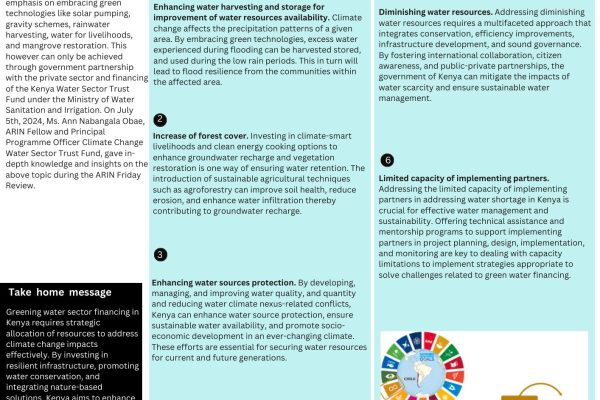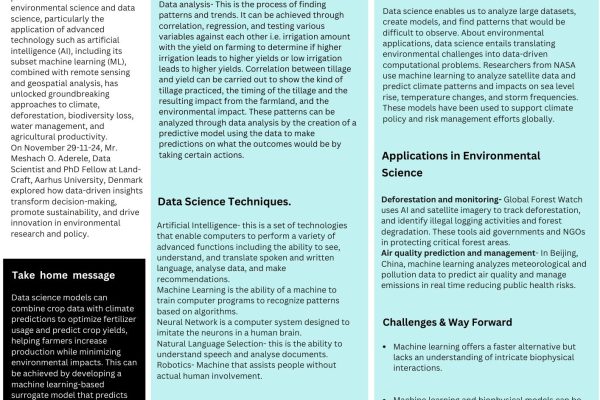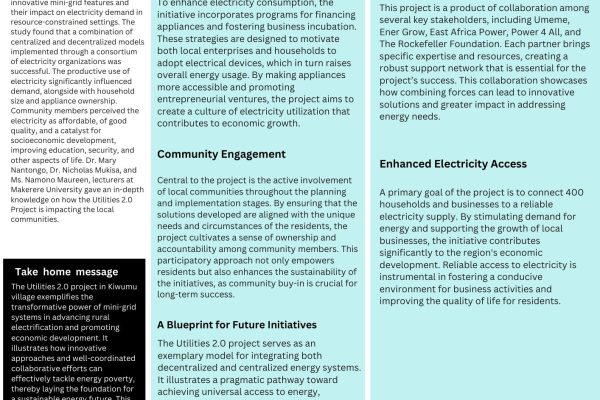Introduction.
Energy is the lifeblood of economic growth and development. Yet, much of Sub-Saharan Africa remains mired in energy poverty, hindering industrialization and social progress. The global imperative to transition to cleaner energy presents both challenges and opportunities for the region. A just energy transition goes beyond merely shifting energy sources; it entails a comprehensive approach that prioritizes equity, inclusivity, and sustainable development. For Sub-Saharan Africa, this means leveraging energy as a catalyst for industrialization, job creation, and poverty reduction. Dr. Uduak Akpan, Director of Research at Spider Solution Nigeria and ARIN Fellow explored how Sub-Saharan Africa can navigate the complexities of energy transition to achieve future energy security, economic security, economic prosperity, and environmental sustainability on August 02, 2024.
Key Messages.
Economic Development
Investing in renewable energy initiatives has the potential to generate employment opportunities across a variety of sectors, including manufacturing, installation, maintenance, and more. This influx of jobs can act as a catalyst for local economies, helping to alleviate unemployment rates. Additionally, when communities gain access to reliable and affordable energy sources, they become more attractive to investors. This investment can spur industrial growth, enhance productivity, and promote a more diversified economy, ultimately leading to a more resilient economic landscape.
Environmental Sustainability
Transitioning to renewable energy sources offers a significant pathway for African nations to lower their greenhouse gas emissions, assisting them in fulfilling their climate obligations as outlined in the Paris Agreement. By moving away from a reliance on fossil fuels, these countries can conserve their natural resources and encourage sustainable development practices. This shift not only contributes to a healthier environment but also supports the long-term sustainability of ecosystems that are vital for the well-being of both people and wildlife.
Access to Electricity
Currently, over 600 million individuals in Sub-Saharan Africa lack reliable access to electricity. A fair and equitable energy transition can play a crucial role in addressing this challenge by harnessing the region’s abundance of renewable resources, particularly solar and wind energy. Moreover, approximately 900 million people in this area do not have access to clean cooking fuels and technologies. By advancing toward renewable energy solutions, there is potential to provide not only electricity but also safer and healthier cooking options, significantly improving living conditions.
International Collaboration
Collaborative partnerships with international organizations and development partners can be instrumental in securing the financial support and technical expertise necessary to drive renewable energy projects forward. Engaging in knowledge-sharing practices and collaborative efforts can foster the exchange of valuable insights and best practices, ultimately enhancing the effectiveness and efficiency of renewable energy initiatives across the region.
Conclusion
Embracing a just energy transition goes far beyond merely reducing carbon emissions; it encompasses the vital elements of stimulating economic growth, promoting social equity, and ensuring environmental sustainability. By actively investing in renewable energy solutions, Sub-Saharan Africa stands to revolutionize its energy framework, elevate the quality of life for its citizens, and make meaningful contributions to global strategies aimed at combating climate change. This holistic approach promises not only to address pressing energy needs but also to create a brighter, more sustainable future for generations to come.




